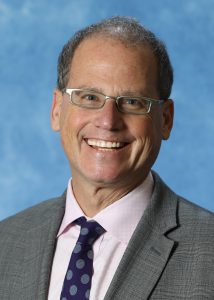
Remember back in 2013, when Hanukkah began on Thanksgiving Day? The mashup of holidays was dubbed “Thanksgivukkah” and we had fun with it. My friend Jennie Rivlin Roberts created a cool t-shirt for the occasion and donated thousands of dollars to charity from the proceeds.
You won’t be surprised to learn that a Jewish woman coined the name Thanksgivukkah. Dana Gitell, then a 37-year-old marketing manager for a Jewish nonprofit, trademarked the name and bought the URL. Given the quirks of the lunar Jewish calendar, another Thanksgivukkah is unlikely to happen again for 70,000 years! But this year we will come close with Hanukkah beginning on Sunday evening, November 28, just three days after Thanksgiving.
In the Thanksgivukkah spirit, here’s a list of the things for which I am deeply grateful this year.
- The COVID-19 Vaccine – This modern scientific miracle that delivers a safe and effective way to build protection against the virus was developed in record time and continues to save countless lives. I take pride knowing that Albert Borla, Pfizer’s CEO who led the company’s development of the vaccine, is the son of Greek Jews who survived the Holocaust.
- The Braves are World Series Champions! — The ascent of the Braves, after so many years of disappointment, was pure joy for Atlanta — with the added bonus of three Jewish players! This win was exactly what we collectively needed after 18 months of pandemic isolation and anxiety.
- The 2022 Community Campaign — The Campaign is ahead of pace! As of today, we have reached 43% of our goal. I’m so grateful for our generous donors who continue to step up so we can meet urgent local and international needs. You can learn more about our 2022 campaign goals and donate here.
- $10,000 Israel Gap Year Scholarships for High School Seniors — I am delighted to report that The Zalik Foundation has renewed scholarship support for a second year to send graduating high school seniors to Israel. 2022-2023 applications for this year of personal growth and adventure prior to starting college open on December 6!
- The Resurgence of Midtown Atlanta — The Midtown construction boom continues with 16 active projects underway! The strength of Midtown real estate bodes well for our dream of transforming the Federation property at 1440 Spring Street into a vibrant center for Jewish life in the coming years.
- Federation’s Professional Team — It makes me especially proud to see Federation professionals blossoming within the organization. In recent months, several of them have stepped into new roles with added responsibilities. These transitions are a result of our culture of Excellence, Empathy, and Fearlessness, along with our commitment to professional development.
- 548 Commitments to After-Lifetime Giving — That’s right. As we conclude our three-year engagement with the LIFE & LEGACY™ endowment program, Atlanta’s Jewish schools, synagogues, and organizations have secured 548 letters of intent for legacy gifts with an estimated value of $35.2M! It brings me such nachas (Yiddish for joy) to see our community come together to ensure our future financial health. I extend a special thanks to The Harold Grinspoon Foundation for being a phenomenal philanthropic partner through camping initiatives, PJ Library, and the LIFE & LEGACY endowment program.
- Matt Bronfman’s Partnership and Leadership – As Board Chair, Matt has contributed a depth of wisdom and fresh insights during his Federation leadership. I deeply appreciate Matt’s commitment to strengthening our entire community.


